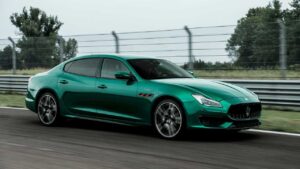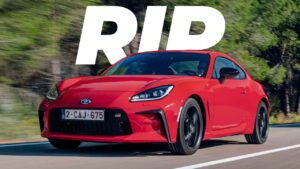German car manufacturer able to pursue diverse drivetrains due to decreased regulations, according to report.
BMW is currently in the midst of converting its entire range to electric vehicles. As a result, it can be inferred that the M3, which serves as their top-of-the-line sports sedan, will soon bid farewell to its traditional combustion engine. This appeared to be the original plan, but recent news from the folks at BMW Blog suggests otherwise. Instead, it seems that a fresh internal combustion engine version of the M3 is being developed, to coexist with an electric counterpart.
BMW Blog has revealed many intriguing facts in their recent report. According to the report, it appears that the electric and combustion engine M3 models will not have a shared platform. In addition to this, it is alleged that the M4 coupe will solely be available as an electric option. This means that the sedan may be the sole choice for individuals seeking a straight-six powered vehicle.
According to BMW Blog, the strategy for the upcoming car is to employ the present 3.0-liter S58 engine, as it meets emissions standards. This suggests that the vehicle will offer a power of approximately 500 horsepower or greater, but it is highly improbable that it will come with a manual transmission. The executives at BMW M appear determined to eliminate troublesome clutch pedals at the earliest opportunity.
BMW previously revealed a four-motor electric M car, but there has been no update since a brief teaser was shared a few months ago. Initially, it seemed that the German car manufacturer planned for this to be the sole drivetrain available in a potential new M3. However, recent reports suggest that relaxed regulatory requirements have brought about a shift in this scenario.
Numerous nations have resisted the implementation of ICE restrictions, and strict emissions standards have been undermined or significantly weakened. For instance, the European Union has included an exception that permits internal combustion engine vehicles to utilize synthetic fuels. Furthermore, there are indications that the upcoming EPA regulations have been reduced under pressure from the automotive sector.
Considering all of these factors, it is logical to assume that BMW will continue to produce a gasoline-powered M3, particularly if it utilizes the same motor as the present model. However, it is important to take this information with caution, as it serves as mere speculation. Nevertheless, this could potentially indicate that traditional combustion engines may still hold significance in the realm of high-performance vehicles until as late as the 2030s.






